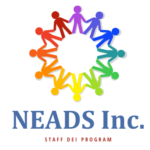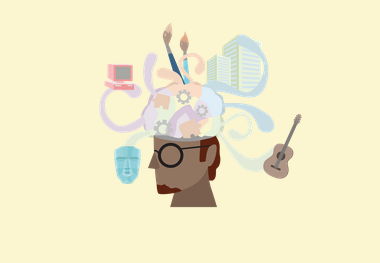Neurodiversity & Neurodivergent: Meanings, Types & Examples
Find out more about the different types of neurodivergence.
Read More“No you’re not” – a portrait of autistic women
When a woman discloses that she’s autistic, the reaction is often, “But you don’t look autistic,” or even a straight denial, “No you’re not.” This insightful and moving series of portraits and interviews by photographer Rosie Barnes allows the voices and experiences of autistic women to be heard.
Read MoreUnderstanding invisible disabilities in the workplace
An invisible disability is a physical, mental, or neurological condition that can’t be seen from the outside. But it can impact someone’s movements, senses, or activities.
Read MoreWhat is Ableism, and What is its impact?
Ableism refers to bias, prejudice, and discrimination against people with disabilities. It hinges on the idea that people with disabilities are less valuable than nondisabled people.
Read More5 Ways To Erase Ableism From The Workplace And Politics
30 years after passage of the Americans with Disabilities Act, the unemployment rate for people with disabilities is still twice the rate for non-disabled people. One of the key reasons may be that many ableist assumptions about disability and basic competence are still so widely considered common sense that we don’t even think of them…
Read MoreInstead Of These Ableist Words, Use Inclusive Language At Work
Stop using disability as a negative metaphor at work (and everywhere else).
Read MoreThe harmful ableist language you unknowingly use
Some of our most common, ingrained expressions have damaging effects on millions of people – and many of us don’t know we’re hurting others when we speak.
Read MoreUnderstanding invisible disabilities in the workplace
If you see someone at work using a wheelchair, wearing a hearing aid, or using an assistive device, you likely are aware the person has a disability. But not all disabilities are obvious to the eye. These are known as invisible disabilities.
An invisible disability is a physical, mental, or neurological condition that can’t be seen from the outside.
Read MoreAppropriate Terms to Use about Disabilities
While there are varying preferences regarding disability terminology, there are some terms which should never be used as they are not respectful of disabled people. The below is not an exhaustive list, but is meant to provide some practical guidance and explanation for terms no longer in use and the recommended alternative.
Read More13 Productive Ways To Support Neurodivergent Employees
Not everyone thinks the same way. Rather than aim for conformity of mind among their staff, business leaders should embrace more diverse approaches and thought processes. By offering unique perspectives and innovative solutions, neurodivergent employees can become key players at their companies.
Read More
